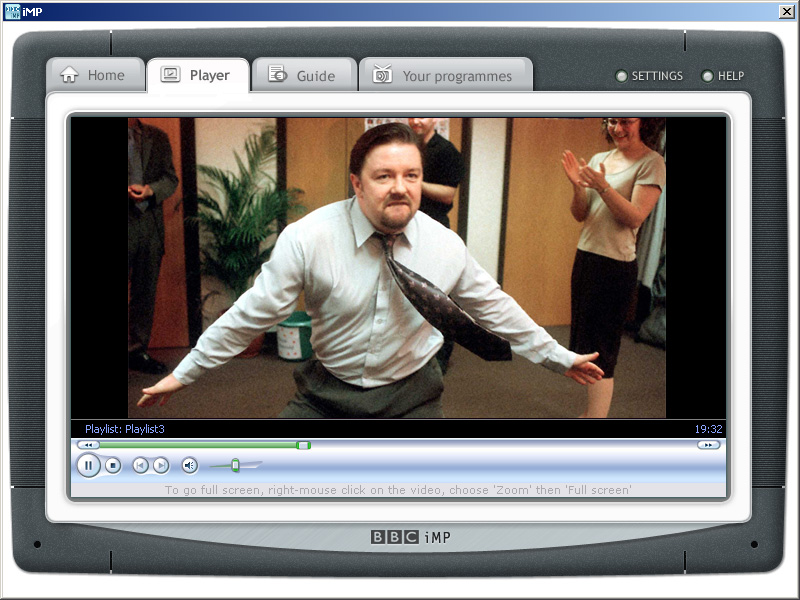On-demand BBC player moves closer
Provisional approval from governing body

The BBC's governing body has given the provisional go-ahead for the BBC's online on-demand television service.
The proposed service is referred to by the BBC as the iPlayer, a piece of software which will bring together all the BBC's audio and video resources. The prototype of the player, the BBC Integrated Media Player (iMP), had a closed trial period in late 2005.
The BBC Trust is the BBC's independent governing body. It has to carry out a Public Value Test (PVT) for any new services due to the public way the BBC is funded.
Certain provisos have been made by the Trust, which we've outlined in full below. These relate to the length of time programmes can remain on users' PCs as well as the platform the system uses. The Trust noted that the content would initially use Microsoft DRM, but thinks this should be "platform agnostic...within a reasonable timeframe."
The Trust will reach a final decision on the player "before 2 May", after the idea has been through a consultation period. Regulator Ofcom has also published the results of the research it carried out as part of its Market Impact Assessment, or MIA. Ofcom's findings were considered by the BBC Trust as part of its conclusions.
Diane Coyle, BBC Trustee said: "Our view is that the BBC's new on-demand services are likely to deliver significant public value, and should be allowed to proceed, but subject to certain conditions in order to reduce the potential negative market impact."
The Trust's release cited that public value would be derived "particularly as patterns of media consumption shift from linear broadcast to on-demand."
Sign up for breaking news, reviews, opinion, top tech deals, and more.
"In representing the public interest, the Trust's duty includes ensuring that the BBC does not adversely affect the market by reducing choice for licence fee payers," continued Coyle. The trust has assessed "the potential negative market impact" and has seen that the public interest outweighs any pestilential concerns by competing services.
Services
The proposals by the BBC include these services:
- Seven-day TV catch-up over the internet
- Seven-day TV catch-up over cable
- Simulcast TV over the internet (streaming of live television networks)
- Non-digital rights management audio downloads over the internet (podcasting)
Provisos laid down by the trust
Catch-up TV: Storage window for seven-day online TV catch-up over the internet should not be wholly excluded because it creates public value; but should be limited to 30 days. The BBC Executive's application had previously proposed 13 weeks for this feature.
Series stacking: The public value of allowing access to free content needs to be balanced against the value of the BBC's secondary rights and potential for negative market impact. The Trust agrees with Ofcom that there is a need for a tighter definition of which series would be offered for stacking.
Platform-agnostic approach: As proposed, the TV catch-up service on the internet relies on Microsoft technology for the digital rights management (DRM) framework. The Trust will require the BBC Executive to adopt a platform-agnostic approach within a reasonable timeframe.
Genres included in non-DRM audio downloads: Audio-books and classical music should be excluded from the non-DRM downloads. The public value to be created is not, in the Trust's view, sufficient to justify the potential market impact of allowing downloads of these genres.
Protection of children from unsuitable content: The Trust will require the BBC Executive to present options to ensure this.
Dan (Twitter, Google+) is TechRadar's Former Deputy Editor and is now in charge at our sister site T3.com. Covering all things computing, internet and mobile he's a seasoned regular at major tech shows such as CES, IFA and Mobile World Congress. Dan has also been a tech expert for many outlets including BBC Radio 4, 5Live and the World Service, The Sun and ITV News.